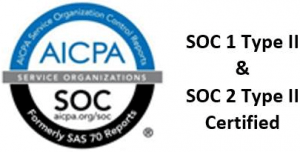Drawing from our own experiences, we compiled 10 best practices to help your credit department increase cash flow and improve customer interactions.
- Use Invoices to inform A well designed invoice strengthens customer relationships. As a result, it should clearly communicate the purchase order, details on the service or product provided, the amount due, due date, and payment method.
- Make “Collection Prevention” part of customer service. Before the invoice is due contact the customer with questions including: “Did you receive the invoice? Do you agree with it? Are you satisfied with the product or service?” Record the answers. This is an opportunity to solve problems, dispel excuses and builds good will.
- Develop and communicate a firm collection policy. A written collection policy outlining specific, escalating steps ensures consistency. Enforcement allows the credit or collection professional to assure the debtor an action is strictly policy.
- Prepare for the interaction. Research the customer’s payment patterns and financial health using business credit reports. Have documents handy for your reference and to send to the debtor if necessary.
- Listen carefully. Ask questions and record the answers. Your goal is to collect the payment in full while maintaining a strong customer relationship.
- Follow the Golden Rule. Treat people as you would like them to treat you. Debtors should never feel personally attacked. This is important for two reasons:
- Respect puts your debt at the top of the pile and improves your cash flow ahead of your competitors
- Harassing debtors makes them defensive because anything said that is slightly aggressive will be perceived as a threat. Consequently, debtors will quickly complain to the Better Business Bureau, Attorney General, or contact their own attorney.
- Know your audience and be culturally aware. A firm communication with an American debtor may backfire in Latin America and Europe. Language barriers create confusion and frustration on both sides of the table. Coming on strong may lead the debtor to cut all communications with your firm. Therefore, leverage local resources providing guidance on the best approach and language for dispute management.
- Be empathetic and provide options. Always let debtors know you have the same goal- to get the account settled and get them back on good credit terms. Below are some options giving the debtor a sense of control and persuade them to act. Be advised that the last option is the most expensive and least favorable!
- Immediate payment of the full balance
- A reasonable payment plan
- An agreed settlement amount from both parties
- A lawsuit seeking judgement
- Solve problems by being the mediator. Suggest solutions that result in debt collection and a continuing relationship. A debtor may need the product or service provided by your company in order to make enough money to pay you. Look at hybrid deals that allow for payment as well as giving the debtor the ability to buy more from you.
- Observe patterns and make suggestions. A few years back we had a client that sent an unusually large number of customers into collections. While the paperwork called for the standard 30 days, it turned out that one sales person was telling his seasonal business customers they could have six months to pay. The debtors didn’t understand why they were being placed into collection when, according to sales, they still had two more months to pay. Take note of patterns in the reasons debtors give for non-payment and share them with the right people in your organization.
In conclusion, our suggestions boil down to this: Actions taken represent your company and determine your brand reputation. Treat your debtor with respect. Handle the account without judgement. Get to the root of the problem and suggest creative solutions. By following these tips, you will improve your cash flow through faster recovery as well as preserve your customer relationships.
Have more questions? Let us help.





